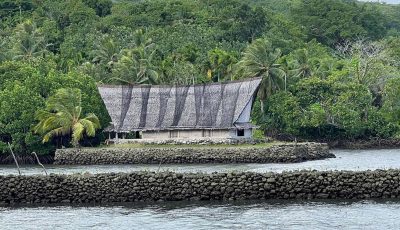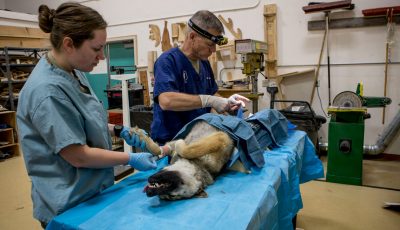FAQs: Presumptive eligibility for Medicaid during COVID-19 crisis
Applying for Medicaid is easier than ever during the COVID-19 public health emergency.
During the Public Health Emergency, you and your family can quickly and easily apply for CNMI Medicaid program coverage at the Commonwealth Healthcare Corp. This rapid application process is called “presumptive eligibility” or PE.
Individuals and families are eligible for Medicaid if their attested gross income does not exceed 180% of the Supplemental Security Income federal benefit, which is about $28,800 annually for a family of four. CHCC is designated as a qualified entity to conduct Presumptive Eligibility determinations.
How do I apply for Medicaid through Presumptive Eligibility?
You can either pick up an application from the Care and Resource Assistance Office near the clinic cashier on Saipan or print the application at chcc.gov.mp (Corporate Support tab > Revenue Cycle), fill it out ahead of time, and bring it to the CARA office Monday to Friday between 7:30am and 4:30pm. The CARA office is located next to the cashier window in the outpatient clinic waiting area.
You only need to attest to your household income and family size. Nothing else is required.
Within five days, you will receive a “Notice of Determination.” If it is determined that you’re eligible for Medicaid through presumptive eligibility, you can use the NOD as proof of Medicaid enrollment.
Do I get the same health care coverage as other Medicaid beneficiaries if I enroll through PE?
Yes, if you are enrolled to Medicaid through the Presumptive Eligibility process, you will receive the same benefits as other enrollees, but only while the Public Health Emergency is in effect.
Unless you complete the full Medicaid application and enroll in coverage the traditional way, your Medicaid coverage will cease when the Public Health Emergency is no longer in effect. It is not known how long the Public Health Emergency will last, so applicants for Medicaid coverage through PE are also strongly encouraged to turn in a full application to Medicaid for long-term Medicaid coverage beyond the Public Health Emergency.
Could enrolling into Medicaid through Presumptive Eligibility impact my eligibility for permanent resident status in the future?
The public charge rule does not impose barriers on children under the age of 21 years, pregnant women, and postpartum women (60 days after delivery) from accessing Medicaid services, nor does it penalize families if their U.S.-citizen child is accessing benefits.
According to U.S. Citizenship and Immigration Services under the new public charge rule, a public charge is defined as an alien who has received one or more public benefits, including Medicaid, as defined in the rule, for more than 12 months within any 36-month period. An alien who is likely at any time to become a public charge is generally inadmissible to the United States and ineligible to become a lawful permanent resident. However, receiving public benefits such as Medicaid does not automatically make an alien ineligible to become a lawful permanent resident. (PR)



























